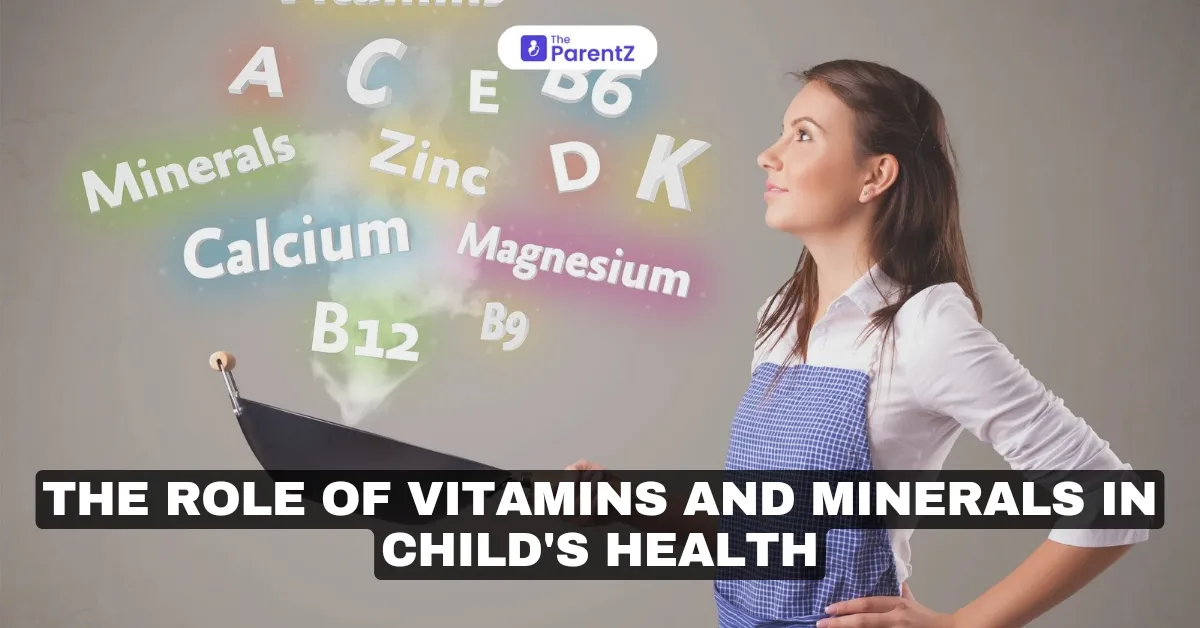Children are in a constant state of growth, and their bodies require a wide range of nutrients to support physical, cognitive, and emotional development. While a balanced diet is key, certain vitamins and minerals play crucial roles in ensuring optimal health. Without these nutrients, children may experience developmental delays, weakened immune systems, or other health issues. This article will explore the most essential vitamins and minerals for children, their benefits, and practical ways to incorporate them into your child’s diet.
The Importance of Vitamins and Minerals in Child Health
Vitamins and minerals are micronutrients, meaning they are needed in small amounts but are vital for a child’s health. From supporting bone growth to boosting immunity, these nutrients ensure that children reach their full developmental potential. Let’s explore some of the most essential ones:
1. Vitamin D
• Role in Health: Vitamin D is critical for calcium absorption, which strengthens bones and teeth. It also supports the immune system.
• Sources: Sunlight is the best source, but it can also be found in fortified foods like milk, cereals, and some fish.
• Incorporating in Daily Routine: Encourage outdoor playtime in the morning or late afternoon to increase sun exposure. Serve vitamin D-fortified products like milk with breakfast.
2. Calcium
• Role in Health: Calcium is fundamental for strong bones and teeth. It also helps with nerve function and muscle contraction.
• Sources: Dairy products such as milk, cheese, and yogurt are rich in calcium, as are leafy greens like spinach and fortified plant-based milks.
• Incorporating in Daily Routine: Make dairy products a staple in snacks and meals, or try calcium-rich smoothies with yogurt, fruit, and spinach for a nutrient boost.
3. Iron
• Role in Health: Iron is essential for the production of hemoglobin, which carries oxygen in the blood. Iron deficiency can lead to anemia, fatigue, and cognitive delays in children.
• Sources: Red meat, lentils, beans, tofu, and fortified cereals are good sources of iron.
• Incorporating in Daily Routine: Add iron-rich foods like beans or lentils to soups or stews. Pair iron-rich plant foods with vitamin C-rich items like oranges or tomatoes to improve absorption.
4. Vitamin C
• Role in Health: Vitamin C boosts the immune system, helps the body absorb iron, and promotes healthy skin and tissue repair.
• Sources: Citrus fruits like oranges, strawberries, bell peppers, and broccoli are excellent sources of vitamin C.
• Incorporating in Daily Routine: Include fresh fruit with breakfast or pack cut-up vegetables like bell peppers in lunchboxes for a vitamin C boost.
5. Vitamin A
• Role in Health: Vitamin A is important for vision, immune function, and skin health.
• Sources: Carrots, sweet potatoes, spinach, and eggs are rich in vitamin A.
• Incorporating in Daily Routine: Serve colorful salads or smoothies with orange and leafy green vegetables to ensure your child gets enough vitamin A.
6. Zinc
• Role in Health: Zinc supports immune function, wound healing, and cell growth.
• Sources: Meat, shellfish, dairy, nuts, and seeds are high in zinc.
• Incorporating in Daily Routine: Include a handful of nuts or seeds as a snack option or incorporate lean meats into dinner.
7. B Vitamins (B12, B6, Folate)
• Role in Health: B vitamins are essential for energy production, brain development, and the formation of red blood cells.
• Sources: Eggs, meat, dairy, whole grains, and leafy greens provide these vitamins.
• Incorporating in Daily Routine: Start the day with a whole grain breakfast cereal or eggs to ensure your child receives a good dose of B vitamins.
How to Incorporate These Nutrients into Your Child’s Daily Routine
Incorporating these essential vitamins and minerals into a child’s daily diet may seem challenging, but with a bit of creativity and planning, it can become second nature. Here are a few tips to ensure your child gets what they need:
• Meal Planning: Prepare meals that include a variety of food groups—grains, vegetables, proteins, and dairy. This not only adds balance but ensures diverse nutrients are covered.
• Fortified Foods: Some vitamins, like vitamin D and iron, may be harder to get naturally, so choosing fortified cereals, plant-based milks, and other products can help fill any gaps.
• Snack Smart: Replace sugary snacks with fruits, vegetables, nuts, and yogurt. These are easy, nutrient-packed options that children will enjoy.
• Smoothies: Smoothies are a great way to sneak in fruits, vegetables, and dairy. Use ingredients like spinach, yogurt, and berries for a vitamin-rich drink.
Conclusion
Ensuring that children receive the right balance of vitamins and minerals is crucial for their development and long-term health. These essential nutrients play vital roles in everything from bone health to cognitive development, and incorporating them into a child’s diet doesn’t have to be difficult. By offering a variety of nutrient-dense foods, parents can help their children grow up strong and healthy.
Note to Parents
Your child’s nutrition is foundational to their growth and happiness. It might seem overwhelming at times, but small steps like incorporating more fruits, vegetables, and fortified foods into meals can make a huge difference. Encourage your child to try new foods and create a positive eating environment. Most importantly, remember that you are laying the groundwork for a lifetime of healthy habits!








Be the first one to comment on this story.